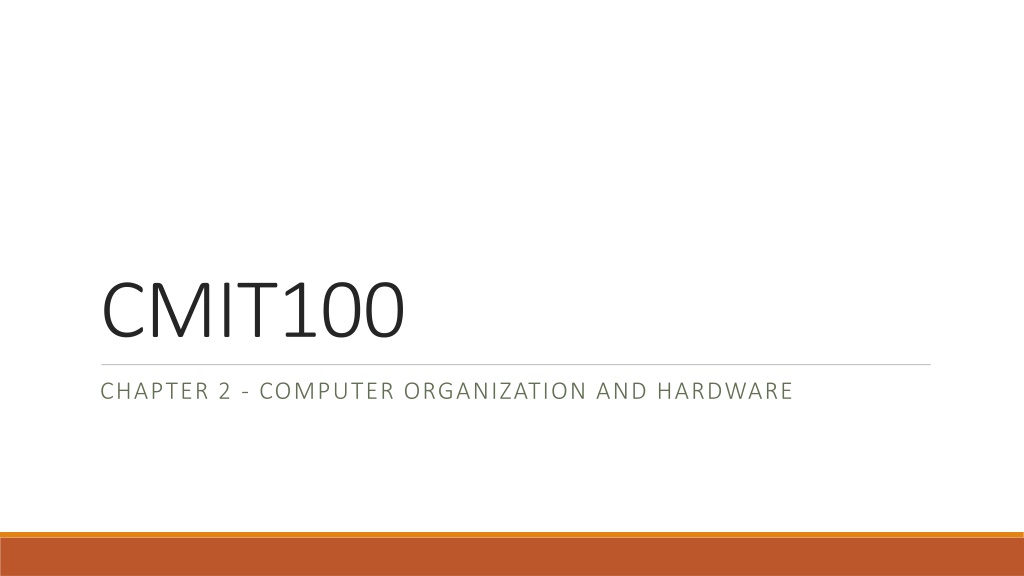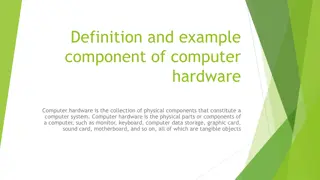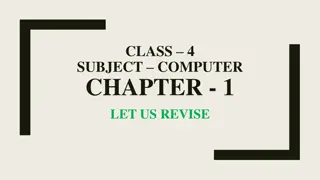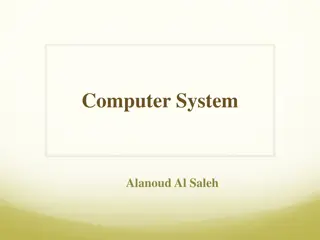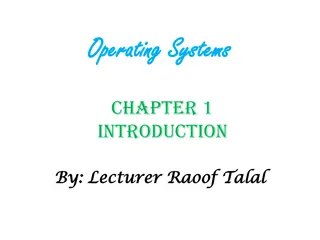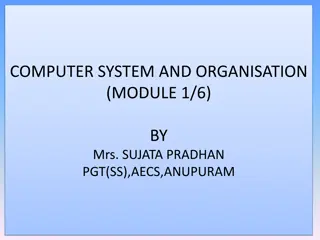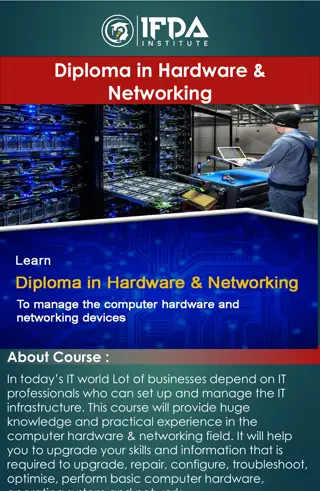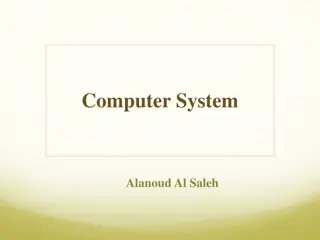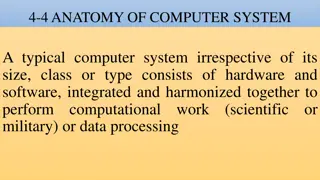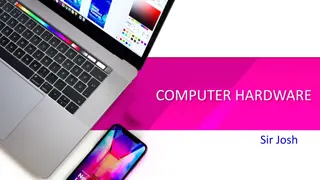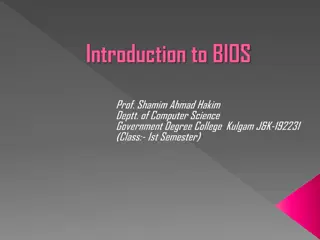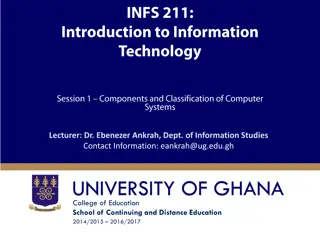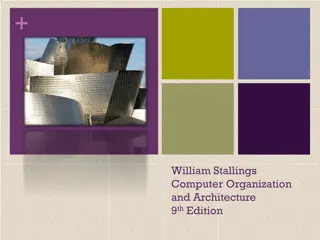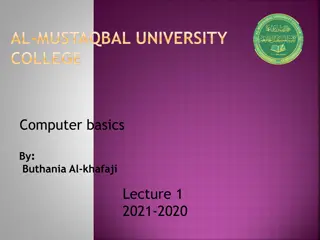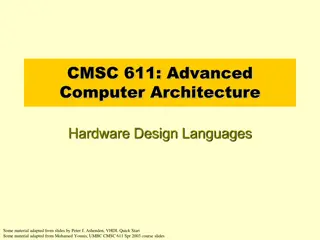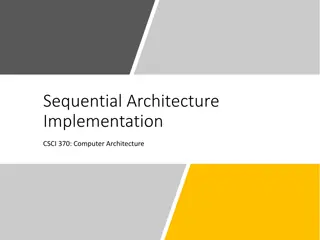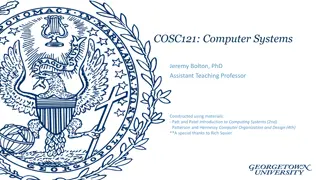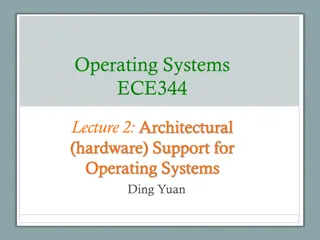Understanding Computer Organization and Hardware Components
Explore the components of a computer system, from the CPU to storage devices, and learn about the IPOS cycle, memory hierarchy, and input/output devices. Discover the importance of assembling a computer from individual parts and the impact of I/O devices on human-computer interaction.
Download Presentation

Please find below an Image/Link to download the presentation.
The content on the website is provided AS IS for your information and personal use only. It may not be sold, licensed, or shared on other websites without obtaining consent from the author. Download presentation by click this link. If you encounter any issues during the download, it is possible that the publisher has removed the file from their server.
E N D
Presentation Transcript
CMIT100 CHAPTER 2 - COMPUTER ORGANIZATION AND HARDWARE
Learning Objectives Identify the components of a computer and their roles. Describe the fetch execute cycle. Discuss characteristics that impact a processor s performance. Describe the different levels of the memory hierarchy. Describe the role of the various types of input and output devices. Discuss the impact that I/O devices have on the human body and the importance of HCI. Illustrate how a computer can be assembled from component parts.
IPOS Cycle Input Processing Output Storage
The CPU Processes programs The brain of the computer Comprised of: Arithmetic Logic Unit (ALU) Control Unit
Memory Random Access Memory (RAM) [Instructor selected image of Random Access Memory image included here]
Case Tower Desktop Rack-Mount
Motherboard Provides connections for CPU, memory, storage, and I/O devices
Storage Hard Disk Drive (HDD) Magnetic Disk IDE SATA Solid State Disk
Input/Output (I/O) Devices Bar code reader Input packaging information, used primarily in stores Camera Input video image (still or moving) Goggles Output video image, used primarily in virtual reality Joystick Input motion/pointing information, used primarily for computer games Keyboard Primary means of input for most users Microphone Input voice information Monitor Primary output device Mouse Input user interactions with GUI windowing system Printer Output text and/or images to paper Scanner Input text and/or images from paper Speakers Output music and sound Touch pad/point Common in Laptops
Choosing the right computer What s its role? Server Desktop Laptop Tablet Performance Processor Type and Speed Amount of RAM Type and Size of Storage Network Type and Speed Other Devices
Creative Commons Statement This work by Southern Maine Community College is licensed under a Creative Commons Attribution 4.0 International License. DOL Statement This workforce product was funded by a grant awarded by the U.S. Department of Labor s Employment and Training Administration. The product was created by the grantee and does not necessarily reflect the official position of the U.S. Department of Labor. The Department of Labor makes no guarantees, warranties, or assurances of any kind, express or implied, with respect to such information, including any information on linked sites and including, but not limited to, accuracy of the information or its completeness, timeliness, usefulness, adequacy, continued availability, or ownership.
